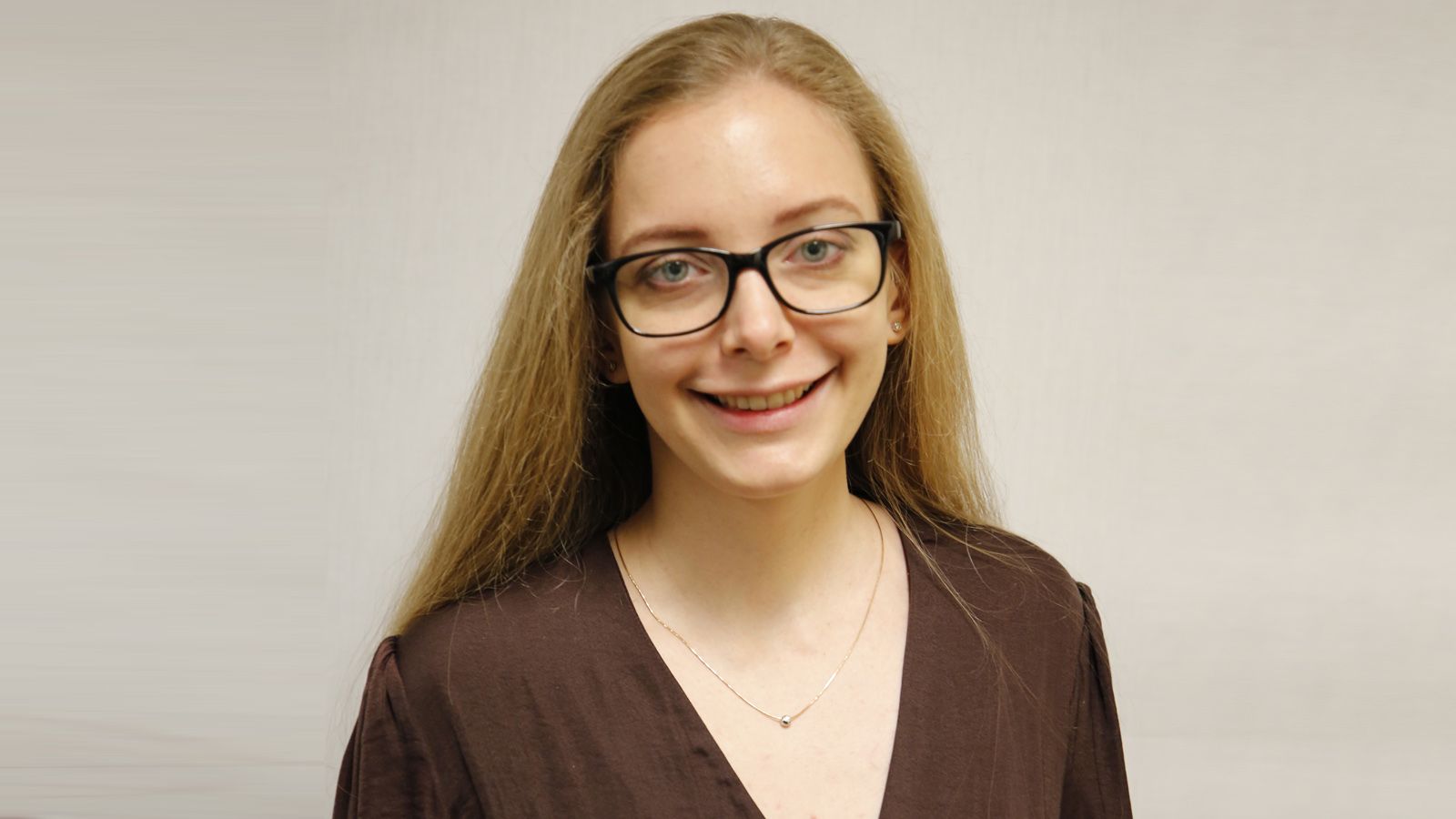At 20, Anna Iatckova left Siberia and came to New York alone, with very basic knowledge of English. She’d completed three years of college in a field that promised financial security but held no interest for her: the economics of the construction industry.
Iatckova solved the language problem by teaching herself fluent English in record time. But the American practice of basing a career choice on one’s interests—rather than on monetary gain alone—was totally new to her.
“Here, society is more flexible,” she says. “My questions were, ‘What do I really want to do? Where can I contribute the most?’”
She started taking online courses in a variety of disciplines, and found herself drawn to the sciences after some courses showed her how much humanity can benefit from advances in scientific knowledge. But her moment of true revelation came away from the computer screen, as she was browsing an old-fashioned bookshelf.
“By chance, I picked up a popular neuroscience book called Brain Rules. And things became magical,” she says. “I came to the realization that our behavior, thoughts, dreams—everything we live every day—is contingent on the brain, its activity, its architecture, its health.”
Iatckova wanted to study the brain’s complex structure, but she didn’t know which school would best serve her purposes. Then she met a Lehman College neuroscientist who told her about the Hunter Psychology Department’s affordable, highly regarded undergraduate curriculum in behavioral neuroscience. So she successfully applied to Hunter and started college anew as a freshman.
At first she had to split her time between her studies and various part-time jobs. But in those early semesters, she got strong support and encouragement from two Hunter scientists who recognized her potential: neurophysiologist and Distinguished Professor of Psychology H.P. Zeigler, and cellular biologist and Undergraduate Education Specialist Dr. Samantha Sheppard-Lahiji.
“When I thanked Dr. Sheppard for her excellent intro bio course, she responded by telling me, ‘I know you’re going to do great things,’” Iatckova recalls. “I was going through a divorce, had financial difficulties and was working crazy hours off campus, so it was a challenging time for me personally. But coming from her as a woman in science, those words motivated me to take a second breath and stay on track.”
After two years, wanting to focus less on psychology and more on the biology of the brain, Iatckova chose to major in biology with a concentration in neurobiology. In that move, she was strongly supported by Hunter’s Mitchell Goldfarb, professor of biology, whom she calls “an amazing scientist and a fantastic mentor.” In Professor Goldfarb’s lab, she participated in research on molecules that contribute to the ability of neurons to fire appropriately—research that may lead to successful treatments of genetic diseases like epilepsy.
Gradually, with the support of various Hunter programs, Iatckova was able to work less off campus and become a full-time student. In 2017, she received the Charlotte W. Newcombe Scholarship, which offers financial assistance to qualifying students aged 25 and older. Later that year, she joined the McNair Scholars Program, which offers workshops, seminars, and lectures to academically promising students who hope to attend graduate school. And in 2018, with the help of her McNair mentors, she earned a spot in the Amgen Scholars Program, a global undergraduate summer research program in science and biotechnology. She spent 10 weeks learning to perform electrophysiology in brain slices alongside the top researchers at UC San Francisco, an experience that she deems deeply transformative for her as a scientist.
If there is one thing I hope my fellow students gain by reading my story,” she ventures, “it’s the knowledge that there are amazing mentors here at Hunter, and they can help anyone find financial resources and professional growth opportunities available to students in every major.” She adds that her critical, very first steppingstone to financial stability and true academic freedom was a Mother’s Day Scholarship from Hunter alumna Nellie Gipson ’83 and her husband, Robert.
“I’m eternally grateful to the Gipsons for their support,” Iatckova says.
And the Gipsons must be very pleased with the results of their investment. Iatckova is headed to the Weill Cornell Graduate School of Medical Sciences, where three years of her doctoral research will be funded by her NSF grant. She notes that the NSF grant is yet another result of effective mentoring—this time by Stephen Lassonde, director of the Newman Office of Prestigious Fellowships and Scholarships.
“In my first lab rotation at Weill Cornell, I’ll be looking at electrical activity in zebrafish models of epilepsy, and I’ll try to create a brain-computer interface that detects activity likely to result in seizures,” she says. “Then I’ll use an algorithm to find the zones responsible for the seizure-like activity, and use a laser to disrupt that activity in an attempt to halt the seizure’s onset.”
Iatckova hopes that what she learns will have many future applications in the treatment of people with a range of physical and mental disabilities.
“I want to be useful and maximize my impact on the world,” she says.


